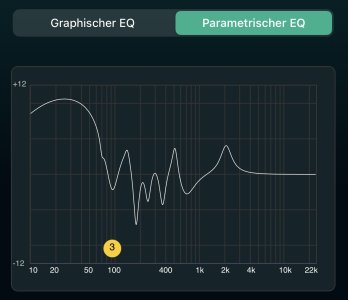Even if frequencies above 400Hz could be assessed with proper acoustic panels, nothing is possible against nodal resonances below Schrodinger frequency, tipical for any given room, without heavy structural intervention.
This is the reason why dsp active room correction is essential, from a basic one based just on levels correction to a much more better correcting phase and time also.
From a correction perspective, the use of subwoofers and not so big speakers can be much more versatile and convenient in terms of placement.
This is the reason why dsp active room correction is essential, from a basic one based just on levels correction to a much more better correcting phase and time also.
From a correction perspective, the use of subwoofers and not so big speakers can be much more versatile and convenient in terms of placement.

